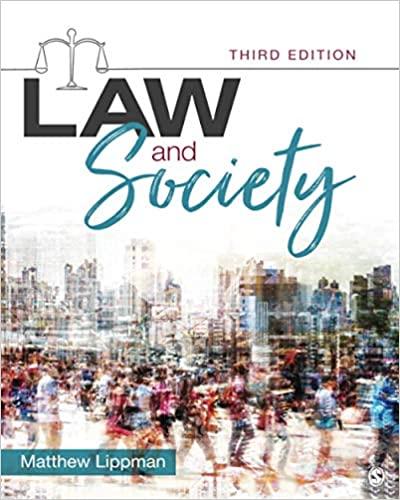Question
TRUE OR FALSE Question1 When the depositary has permission to use the thing deposited, the contract loses the concept of a deposit and becomes a
TRUE OR FALSE
Question1
When the depositary has permission to use the thing deposited, the contract loses the concept of a deposit and becomes a loan or commodatum even when safekeeping is stil the principal purpose of the contract.
Question2
Unless there is a stipulation to the contrary, the depositary cannot deposit the thing with a third person.
Question3
The depositary can demand that the depositor prove his ownership of the thing deposited.
Question4
Fixed, savings, and current deposits of money in banks and similar institutions shall be governed by provisions concerning simple loan.
Question5
The depositary can make use of the things deposited even without the express permission of the depositor.
Question6
Movable and immovable things may be the object of judicial deposit.
Question7
An agreement to constitute a deposit is binding and is perfected from the moment there is meeting of minds.
Question8
Precarium is a kind of mutuum where the bailor may demand the thing loaned at will.
Question9
A contract whereby one person transfers the ownership of non-fungible things to another with the obligation on the part of the latter to give things of the same kind, quantity and quality shall be considered a loan.
Question10
When there are two or more bailees to whom a thing is loaned in the same contract, they are liable jointly.
Question11
The bailee in commodatum can lend or lease the object of the contract and its fruits.
Question12
The bailee in commodatum acquires the use of the thing loaned and its fruits.
Question13
Commodatum and mutuum involve real and personal property.
Question14
In commodatum, one of the parties delivers money or consumable thing upon the condition that the same amount of the same kind and quality shall be paid.
Question15
Mutuum is essentially gratuitous.
Question16
A guarantor undertakes to pay if the principal debtor does not pay.
Question17
A guaranty may be given as security for future debts even if the amountis not yet known at the time the contract of guaranty is taken.
Question18
The subsequent loss of the integrity or property or supervening incapacity of the guarantor would operate to exonerate the guarantor or the eventual liability he has contracted, and the contract of guaranty continues.
Question19
A guarantor is bound to take notice of the non-performance of his principal.
Question20
A solidary debtor cannot be considered a guarantor of his co-debtor.
Step by Step Solution
There are 3 Steps involved in it
Step: 1

Get Instant Access to Expert-Tailored Solutions
See step-by-step solutions with expert insights and AI powered tools for academic success
Step: 2

Step: 3

Ace Your Homework with AI
Get the answers you need in no time with our AI-driven, step-by-step assistance
Get Started


